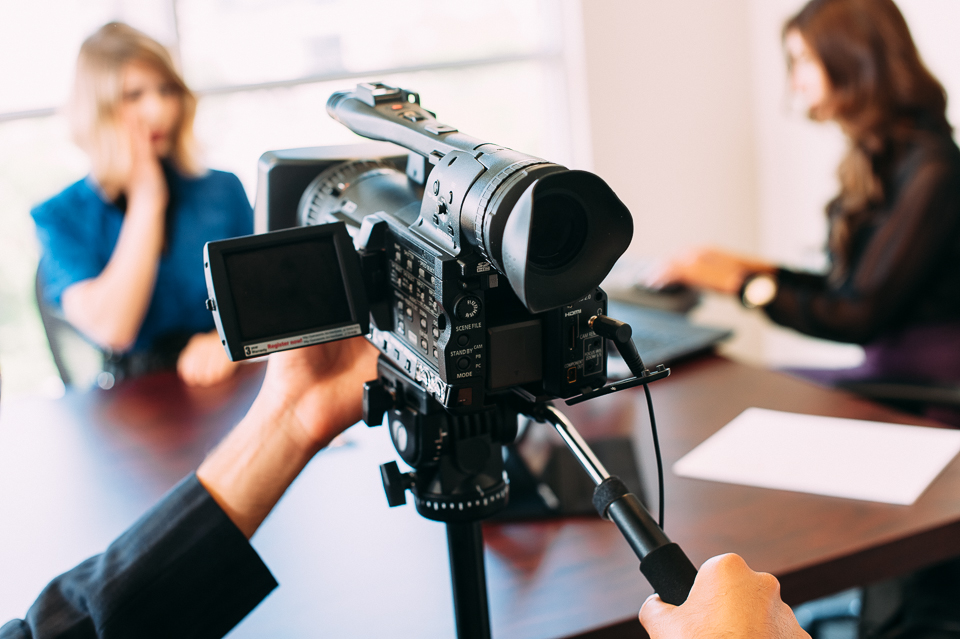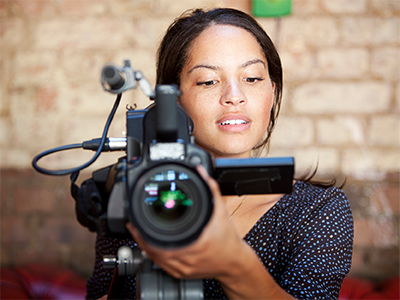The Role of Lawful Videography in Depositions and Tests
Legal videography has actually emerged as an essential device in both depositions and tests, providing a diverse technique to recording witness testaments. As lawful experts significantly identify its value, it triggers a deeper examination of exactly how these aesthetic documents can influence juror perceptions and test outcomes.
Importance of Lawful Videography
Lawful videography plays a crucial function in the paperwork and presentation of depositions and trials. This specific area combines technical abilities with lawful knowledge to produce a reliable document of procedures that can considerably affect situation results. The appearance of legal videography boosts the understanding of witness statement, enabling jurors and courts to observe not only the talked words yet likewise the behavior, emotions, and body movement of the witnesses.

The relevance of lawful videography expands beyond the court; it likewise plays a vital duty in protecting proof for future referral, whether for charms or additional legal action. Its combination right into the lawful process is crucial for making sure a fair and exact depiction of the truths, ultimately contributing to the quest of justice.

Refine of Legal Videography
While capturing the nuances of depositions and trials, the procedure of legal videography entails a number of important actions that guarantee top notch, accurate recordings. Initially, an expert lawful videographer prepares by assessing the case materials and understanding the particular demands of the deposition or test. This preparation includes familiarizing themselves with the participants and the context, which helps in catching essential information.
On the day of the recording, the videographer establishes up the needed tools, which commonly consists of high-def electronic cameras, microphones, and correct lights. Making certain optimum angles and audio high quality is vital, as it straight impacts the effectiveness of the recording. The videographer communicates with lawyers and individuals to establish protocols, guaranteeing that everyone understands the recording procedure.
Throughout the deposition or trial, the videographer carefully records the process, paying close focus to both spoken and non-verbal hints. legal videography. This includes recording the temperament and responses of witnesses and attorneys. After the session concludes, the videographer might edit the footage for quality and conformity with legal standards, generating an end product that properly shows the procedures for future reference and usage in legal contexts
Advantages in Depositions
The consolidation of videography in depositions provides numerous benefits that enhance the total process of collecting evidence. One primary advantage is the capacity to catch witness testimonies with aesthetic and auditory integrity, supplying a more exact representation of the witness's temperament, tone, and body language. This multidimensional approach enables lawyers and courts to assess credibility better than typical written transcripts alone.
In addition, videographed depositions work as an effective tool for protecting testament. Ought to a witness come to be unavailable for test, their recorded deposition can be played in court, making sure that their evidence stays click for source obtainable and relevant. This element significantly minimizes the risk of losing critical info that can impact instance outcomes.
Moreover, making use of legal videography advertises far better preparation for attorneys. Evaluating video clip footage permits legal teams to evaluate and fine-tune their approaches, identifying staminas and weak points in their instances. This preparatory advantage can result in more engaging discussions in court.
Last but not least, videography enhances the general professionalism and reliability of the deposition procedure, instilling self-confidence in customers regarding the thoroughness of their lawful depiction. By leveraging modern technology, lawyers can significantly enhance the efficiency of depositions.
Effect on Trials
In lots of tests, the combination of videography can dramatically affect the presentation of evidence and the jury's perception. Legal videography captures witness testimonies and vital evidence in a dynamic format, allowing jurors to engage with the material on multiple levels. This visual part boosts the narration element of a trial, offering context and emotional vibration that traditional text-based proof might do not have.
Additionally, video clip recordings can serve as powerful devices for impeachment throughout interrogation. When inconsistencies occur between a witness's previous declarations and their court testimony, video clip evidence provides an objective referral that can persuade jurors' opinions. This immediacy and quality can boost the reputation of a celebration's narrative while at the same time threatening opposing disagreements.
Additionally, using videography can assist streamline intricate info, making it more obtainable to jurors that may battle to comprehend intricate information presented only with verbal testament. By click resources combining visuals with acoustic information, lawful videography can improve retention and understanding, inevitably affecting the jury's decision-making procedure. The impact of videography in tests extends past mere looks; it plays a crucial function in forming the lawful landscape and outcomes.
Future Trends in Legal Videography
As we look towards the future of legal videography, several arising fads promise to reshape its duty within the courtroom. One substantial trend is the combination of artificial intelligence (AI) in video clip analysis and editing - legal videography. AI can simplify the procedure of identifying crucial minutes in recorded depositions, allowing attorneys to swiftly access appropriate material, consequently boosting efficiency in case preparation
Furthermore, the increase of digital truth (VR) and enhanced truth (AR) modern technologies is anticipated to change how Source jurors experience evidence. By immersing jurors in a simulated atmosphere, these innovations can supply an extra profound understanding of complicated situations, causing even more informed considerations.

Furthermore, the enhancing demand for remote depositions, accelerated by the COVID-19 pandemic, will likely continue. Lawful videographers will certainly require to adapt to new software and systems to make certain top quality recordings in virtual setups.
Last but not least, the growing emphasis on information security will certainly require stricter protocols for saving and sharing video clip evidence. As the lawful landscape advances, legal videographers must remain abreast of these fads to preserve their relevance and performance in the judicial procedure.

Verdict
In summary, lawful videography serves a critical function in the judicial procedure, enhancing the stability of depositions and tests. By catching the subtleties of witness testimonies, this medium not just preserves crucial evidence however additionally aids in offering information efficiently to jurors. The relevance of visual paperwork in evaluating integrity and facilitating cross-examination can not be overemphasized. As modern technology continues to progress, lawful videography is positioned to further transform its duty within the lawful landscape.